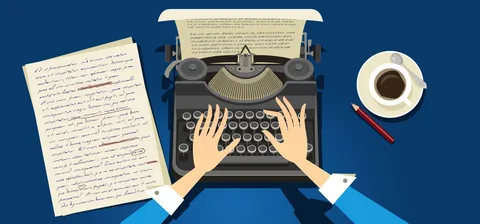Frequently Asked Questions (FAQs) on Freelance Copywriter’s Contract (Licence of Work)
What is a Freelance Copywriter’s Contract with a Licence of Work?
A Freelance Copywriter’s Contract with a Licence of Work is a legal agreement between a copywriter (Licensor) and a client (Licensee) outlining the terms under which the client can use the copywriting work. It specifies the rights granted, duration, and limitations of usage.
Why is a Licence of Work important in a Freelance Copywriter’s Contract?
The Licence of Work clarifies the rights and permissions granted to the client for using the copywriting work, ensuring both parties understand the scope of usage and protecting the copywriter’s intellectual property.
What rights does the Licence of Work grant to the client?
The Licence of Work grants the client specific rights to use the copywriting work for designated purposes, such as publication, distribution, or reproduction, for a defined duration and within specified limitations.
Who retains the copyright in a Freelance Copywriter’s Contract with a Licence of Work?
Typically, the copywriter (Licensor) retains the copyright to the copywriting work, while granting the client (Licensee) a licence to use it under specified terms and conditions.
Can the Licence of Work include exclusivity clauses?
Yes, the Licence of Work can include exclusivity clauses that grant the client exclusive rights to use the copywriting work for a specified period or within specific markets or mediums.
What happens if the client breaches the terms of the Licence of Work?
If the client breaches the terms of the licence agreement, the copywriter may have legal recourse, including termination of the contract, seeking damages, or enforcing specific performance.
Are there restrictions on modifying the copywriting work under the Licence of Work?
The Freelance Copywriter’s Contract may include clauses restricting the client’s ability to modify the work without prior consent from the copywriter to maintain the integrity and originality of the work.
Can the Licence of Work be terminated prematurely?
Yes, the Licence of Work can be terminated prematurely under certain circumstances, such as breach of contract, non-payment, or mutual agreement between the parties.
What steps should be taken to ensure compliance with the Licence of Work?
Both parties should carefully review the terms of the Licence of Work to ensure understanding and compliance. Any questions or concerns should be addressed and documented before signing the contract.
Is it advisable to seek legal advice before entering into a Freelance Copywriter’s Contract with a Licence of Work?
Yes, it’s advisable for both parties to seek legal advice to ensure that the contract complies with relevant laws and regulations and adequately protects their rights and interests.
- Pay-Per-Click Management Service Agreement - July 18, 2024
- Website Minor Work Agreement - July 15, 2024
- Website Design Change Order Form - July 15, 2024









